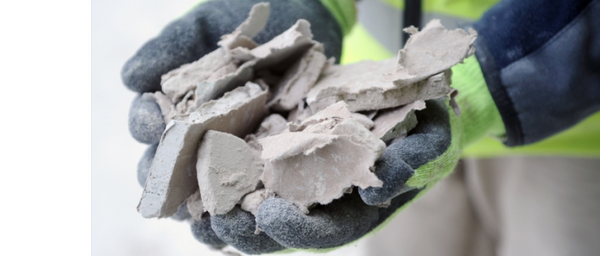
Asbestos was not prohibited from widespread use in Canadian construction materials until 1991. In fact, some forms of asbestos continues to be used in new construction even today, mostly in cement pipes and in some brake pads. Total ban is not expected to take place before the end of 2018.
Therefore, all buildings constructed prior to 1992 are suspect for containing asbestos.
Asbestos is classified as either non-friable (not hazardous and can remain), or friable (can be crumbled by hand – should be sealed/encapsulated or removed).
958 Broadview contains non-friable (non-hazardous) asbestos in 9 inch x 9 inch floor tiles, and in transite (cement-asbestos) panels which clad one rooftop enclosure.
It also contains friable (potentially hazardous) asbestos in insulation which wraps heating pipe elbows and tees, which are concealed inside walls/floors, and inside the two boiler rooms, and inside the electrical room. This pipe insulation is only friable (hazardous) where its original canvas covering has been damaged.
Existing regulations only require asbestos treatment when it is in a friable state, and this treatment can consist of simply sealing/encapsulating the friable item by wrapping with self-adhesive duct tape.
There are no legislative requirements or deadlines for the removal of existing non-friable asbestos.
If renovations are undertaken, any asbestos which may be disturbed by the renovation must be addressed, by either sealing/encapsulating or removal. This process is called abatement.
Advertisement / Reklaam
Advertisement / Reklaam
Asbestos abatement is carried out daily in fully operating and occupied daycares, schools, hospitals, etc., in full compliance with all regulations. Dozens of specialty contractors have performed these asbestos abatements on thousands of Toronto buildings since 1991. Abatement costs are therefore very competitive, and given the small amount of friable asbestos at 958 Broadview, would likely cost less than $25K to abate the entire building.























